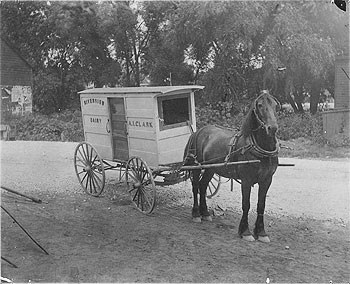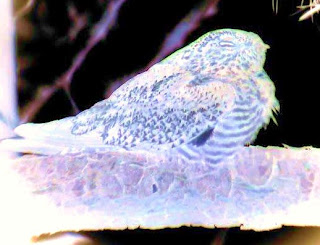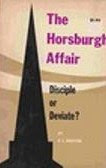The Controversy over Reverend Russell Horsburgh Continues After Almost Half a Century
The following article by Jim and Lisa Gilbert (part one of two) outlines in vivid detail the strange, turbulent, ultimately self-destructive reign of a United Church minister in a sleepy Ontario town. It was the early `60s, and I dutifully went to Sunday School at Park Street United every week, but in between the services there were whisperings that something terrible was happening with the minister. Though I barely understood what was going on, the episode, and my family`s subsequent flight to a rigidly fundamentalist Baptist church, left indelible scars on me. Years later when my church in Coquitlam hired a fraud who had to be dismissed from the pulpit, anguish bubbled up from those buried memories, made worse by confusing, fragmentary information and the poisonous fear that comes from not knowing. A few years ago I tried to google Horsburgh and came up with exactly nothing, so these two articles from 2008 were a revelation to me. I reproduce them here out of gratitude that someone finally made an attempt to make some sense of "the Horsburgh affair". They filled in many informational gaps, while at the same time leaving out a lot of emotional context that could only be experienced by someone who was there. Though I do not agree with all of their conclusions, I am grateful to Jim and Lisa Gilbert for clearing out some of the cobwebs from a dark, scary, and extremely traumatic episode from my childhood.
Tuesday, May 13, 2008
I felt that I might bump into him around the very next corner. His larger-than-life presence drifted in and out of my possibly overactive mind. Whispered teenage voices seemed to be almost audible amidst the quiet of the once former church. There were muffled giggles, whimpers, hushed outrage and hearty laughs that seemingly emanated from everywhere and yet nowhere. I wandered around the former Park Street United Church trying to visualize a man I had only seen once or twice and a scandal that I, as well as most of Chatham Kent, had largely forgotten.
There's a strange mixture of the holy and the profane that seems to permeate the many rooms of the slightly forlorn former church today. Although it has been almost fifty years since the silver-tongued voice of Reverend Russell Horsburgh mesmerized, mocked and motivated those seated amidst the deep, dark pews and the sacred, stained glass windows, his presence still lurks like a forlorn and forgotten spirit that longs to speak but cannot or....dares not.
The former church was so quiet that I suppose I could have imagined many things and the mere closing of the eyes conjured up a hundred visions and revisions. Sitting in the former sanctuary of the silent structure in 2008, it is possible to imagine a time, some forty eight years ago (1960), when Park Street United Church in Chatham, Ontario was described as a "preacher's church" and the most controversial minister ever to step inside its doors was about to make his appearance.

With its population of over a thousand parishioners Park Street was considered to be the second most powerful church in the London Conference and placement there as a minister was considered to be a "plum job" leading to a promising and powerful future.
When Reverend Russell Horsburgh took over the reins of pastor at Park Street in 1960, President John F. Kennedy was still alive, the Beatles were playing for a few pounds in Liverpool and the distant growing din of a new generation willfully embracing sex, drugs and rock and roll had yet to reach the sensitive ears of those church-going, God fearing, conservative residents of Chatham, Ontario.
If there were whispers of change in the air, they were ignored. Those things happened in Detroit or Toronto but not in the safe, innocent and quiet backwaters of Southwestern Ontario. That, however, was to all change the day Reverend Horsburgh stood up in the pulpit and began, in grand oratorical fashion, to outline his vision of the church's future.
"The Rev", as he soon came to be known by the young and those that admired him, looked at things in Chatham's Park Street Church that never were and instead of simply asking "why", he dared to ask "why not?".
Described by those that knew him, or thought that they knew him, as being impetuous, impulsive, caring, rebellious, creative, maddening, charismatic, contradictory and a hundred other things the new minister wasted little time in "opening up" the church. Park Street United Church was, under his guidance, destined to be open seven days a week. He longed to take the church out into the streets and bring those in the streets into his church.
Between 1960 and 1964 he, amid many other things, launched a teen drop-in center, organized youth basketball nights, set up teenage counseling sessions, arranged group therapy sessions, put a pool table in the church hall, and held regular teen dances on Saturday night.
He also, during those first four years, organized a series of Sunday night lectures where he invited, among many others, a rabbi, a Catholic priest, Lester B. Pearson (whose father had been a former minister at Park Street), Virgil Fox ( the famous church organist) and Marian Anderson (the renowned black opera singer) to speak to anyone who chose to attend. The attendance at these presentations was overwhelming. The church, each Sunday night, was "standing room only" as all residents of Chatham and Kent County, no matter what religion they espoused, were invited to have a glimpse at an exciting outside world that had rarely, in the past, come knocking.
Those concerts were followed up by a series of "sex lectures" that ran from October 20th, 1963 to December 8th, 1963 entitled "The Modern Crisis In Sex Morality". While the world mourned and anguished over the assassination of a progressive young leader who seemed immortal, the charismatic "Rev" was intent on bringing the voice of reason and logic to teenagers, as well as troubled adults, who were woefully ignorant. Ignorant about sexual matters as well as about a world that seemed to be moving much too quickly and losing its innocence on many fronts.
The lectures dealt with such innocuous topics, by to-day's standards at any rate, as "going steady", "petting", "lifting sex out of the gutter" and "date bait" but in the 1960s these topics were perceived, by some in the church, as opening the church doors to sex, drugs, rock and roll and, I suppose, Satan himself.
Thoughts turned to whispers, whispers turned to murmurs and murmurs turned to open dissension out in the pews among some of the conservative members of the congregation. They whispered of a minister who listened to no one, who was an ego maniac, who was much too friendly and way too permissive with their children, who allowed too many strangers (some of them black) into their church and was, like the 1960s in general, moving way too fast.
There were others of course in the church (and well beyond the church doors) who considered Reverend Russell Horsburgh to be a saint who embodied the essence of Christianity and who was attempting to save not only the youth of the church but the very church itself.
The scene was set for one of the most controversial events (up to that time) to occur within Canadian church history. It was to occupy the media across Canada and North America. It was to bring the former City of Chatham much unwanted attention, inspire three books, a play, a record album, destroy a man and create a local controversy so powerful and so divisive that I had to think long and hard about bringing it to light once again.
However, after almost half a century and so many other much more horrendous scandals and crimes allegedly committed by the clergy, I felt that it was time to revisit Reverend Russell Horsburgh and attempt to put the incident into a balanced, objective and modern perspective. I wanted to explain both sides of the issue and try to see the good, the bad and the ugly in this really sad story that hints, in many ways, at an almost Shakespearean tragedy.
Next week......I shall try.
Jim and Lisa Gilbert are local, national and international award winning educators and historians.

































